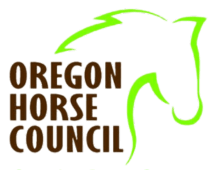Oregon Day features exclusive Oregon-bred Thoroughbred and Quarter Horse races. The OTOBA sponsors 6 Thoroughbred races with added purse money and prominent names.
This year, we paid tribute to past Oregon-bred champions, a leader in Oregon Thoroughbred breeding, and two indigenous tribes whose ancestral lands are in Grants Pass and Southern Oregon.
Thongs Fancy Stakes– Thongs Fancy won five consecutive races as a juvenile and was recognized as Oregon’s Champion Two-Year-Old Filly of 1980. After scoring a maiden special weight victory in her third start in March at Portland Meadows, Thongs Fancy was sent to Grants Pass. She won both of her starts at the Southern Oregon oval, winning an allowance race and the SOHRA Futurity. Thongs Fancy then returned to Portland Meadows, where she won an allowance race and the Janet Wineberg Stakes to complete her juvenile win streak.
Polynesian Flyer Stakes- Polynesian Flyer had deep roots in southern Oregon. His sire Flying Lark-the nation’s leading sire by number of winners in 1981 and 1982-was the pride and joy of iconic Oregon Thoroughbred enthusiast Don Jackson, and stood at his farm in Grants Pass. Polynesian Flyer was bred by Ken and Barbara Hebard of Roseburg. He raced at tracks in three states (Oregon, California and Washington) and two provinces (Alberta and British Columbia), compiling a record of 14-6-4 from 54 starts. Polynesian Flyer won multiple Oregon championships – Champion Two-Year -old Colt or Gelding of 1984, Champion Three-Year-Old Colt or Gelding of 1985, Champion Older Horse or Gelding of 1986, 1987 and 1988, and two-time Horse of the Year (1984 and 1985). At the time of his retirement, Polynesian Flyer was the richest Oregon-bred of all-time (since surpassed) with career earnings of $346,525.
Don Jackson Sprint –
The OTOBA proudly recognizes Don Jackson and his contributions to Thoroughbred breeding and racing in Oregon. Don was a member of the OTOBA for 25 years and served on the board of directors for 13 years. His stallion, Flying Lark, gave a significant boost to Thoroughbred breeding in Oregon. Don advocated for legislative changes that supported breeders. His steadfast resolve to improve Oregon Thoroughbred breeding and secure funding for breeding programs brought breeding to a new level in the state.
Takelma Purse –
The OTOBA recognizes and honors the Takelma Tribe whose ancestral lands are on the Illinois River, Rogue River Valley, in Grants Pass, and in the Cow Creek basin.
Takelma people harvested abundant salmon in the rivers, hunted deer and other game, and relied on various plants in the valleys. Their villages were numerous, and they traded with many bands of indigenous peoples throughout southwestern Oregon and Northern California.
White settlers arrived in the 1820s and began to consume the lands and natural resources the Takelma relied upon. Takelma were removed from their lands and relocated to the Table Rock Reservation in 1853 after signing two treaties, for peace and to cede their land to the United States. The Takelma were force walked on the Rogue River Trail of Tears in the winter of 1856 some 263 miles to the Grand Ronde Reservation. Some Takelmans were moved to the Coast Reservation on the Oregon coast after the war was over.
Takelma descendants today are members of the Confederated Tribes of the Siletz Indians, the Confederated Tribes of the Grand Ronde and the Cow Creek Band of Umpqua Indians.
Tututni Purse – Quarter Horse race
The OTOBA recognizes and honors the Tututni Tribe whose ancestral lands are along the Rogue River and on the Oregon coast where the river meets the ocean.
The Tututni had many villages along the Rogue River. They were skilled at building canoes to travel along the waterway and fish for Chinook salmon.
The Tututni, Takelma and other native tribes in Southern Oregon were deeply affected by the influx of white settlers. The discovery of gold in the area led to numerous conflicts. The Rogue River Wars, ranging from 1851-1856, led to the removal and relocation of all native peoples to protect them from further attacks by volunteer militia. The Tututni signed the Coast Treaty in 1855, and were forcibly moved to the Coast Reservation, hundreds of miles north of their homeland. The treaty was never ratified.
The majority of the Tututni people remain members of the Confederated Tribes of Siletz today, and other descendants are at regional reservations.
The Takelma and Tututni peoples were some of the original inhabitants of the lands in Southwestern Oregon. They have a long and rich history that continues today.
Please visit the OTOBA website for sources and links to learn more about these indigenous nations.
The OTOBA extends our thanks and appreciation to Dr. David G. Lewis, PhD for providing input and education on the Takelma and Tututni peoples. Dr. Lewis is a renowned historian on Native American tribes in Oregon. He is a member of the Confederated Tribes of the Grand Ronde.

The Oregon Thoroughbred Owners & Breeders Association (Oregon TOBA) is a non-profit corporation committed to serving the interests of Oregon’s breeding and racing industries.
